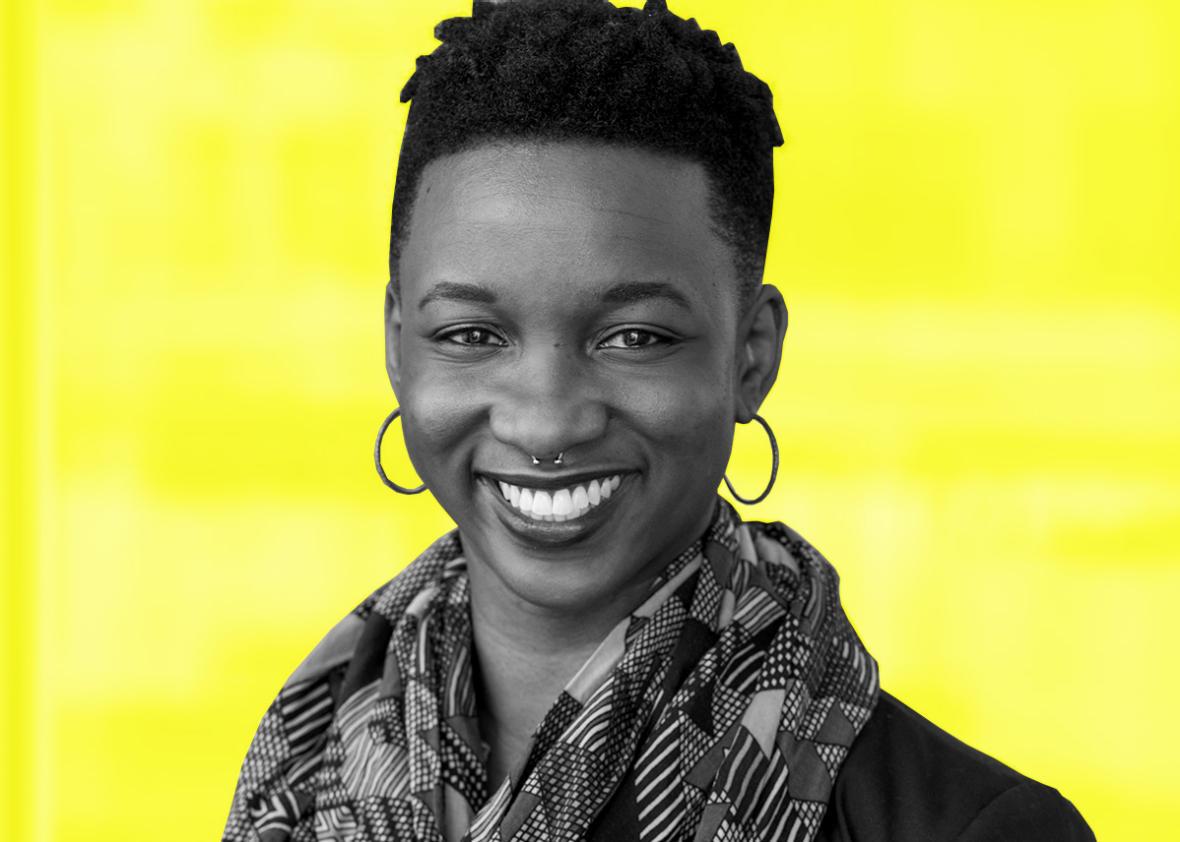Listen to this episode of Working with special guest Shane’a Thomas:
Subscribe in iTunes ∙ RSS feed ∙ Download ∙ Play in a New Tab
Slate Plus members: Get your ad-free podcast feed.
This season on Working, we’re speaking to individuals employed in fields potentially imperiled by the Trump presidency. These are the stories of people doing difficult but important jobs—jobs that may get much more difficult and much more important in the years ahead.
For many, the Trump presidency has already been an emotional catastrophe as well as a political one. To better understand the reverberations of our political moment—and how some are grappling with them—we reached out to Shane’a Thomas, a psychotherapist at Whitman-Walker Health in Washington.
Thomas works primarily with young people who identify along the LGBTQ spectrum and who have experienced a trauma of some kind. She connects her work with those patients to her own process of self-discovery. “They don’t have another place to talk about their bodies and being queer,” she says, explaining that she tries to furnish just that, drawing in part on the similar environments others provided to her in the past.
At any given time, Thomas is seeing between 16 and 18 patients, most of them on a weekly basis. And the vast majority of her days are spent with them, talking and—above all else—listening. But she also goes through different activities with each of them, sometimes engaging in structured exercises to help them grapple with past traumas, sometimes drawing on a white board, and sometimes just sitting in silence.
She’s found that she makes the job harder when she starts with a plan about where she wants to take any given patient over the course of their sessions. Instead, she works to figure out their own goals and then tries to build a rapport that will let her help them achieve them. Sometimes, of course, her patients’ goals aren’t easy to meet, but she still strives to get them to a clearer place. “This pain isn’t going to leave you tomorrow,” she sometimes has to remind them, even as she tries to give them tools to help them manage that pain, while also seeking to identify the things that are working for them already.
People often come to see her because they’re feeling isolated, and she works to help them overcome that experience, but she knows she can’t do it alone. Indeed, she sometimes encourages her patients to participate in events in their communities, the better to see themselves in others. “If I can’t help you, I want to find out who can help you,” she says.
That’s important because she can’t work with any one patient for all that long. Sometimes, she says, clients just stop coming in and effectively disappear. Thomas admits that she sometimes freaks out when that happens, and she does what she can to make sure they’re OK while also respecting that they may have their own needs in the moment. When the process seems like it’s coming to an end naturally, on the other hand, she often collaborates with the patient to taper things down slowly. “We make that decision together,” Thomas says. “And I’m kind of like a momma bird. I say, OK. Are you sure?”
Unsurprisingly, the election—and much of what preceded it—has made life harder for many of Thomas’ patients, partially because many of them belong to marginalized groups. “It’s hard, because I am also a marginalized person,” Thomas says.
Then, in a Slate Plus extra, Thomas shares her thoughts on armchair attempts to diagnose the president’s mental health. If you’re a member, enjoy bonus segments and interview transcripts from Working, plus other great podcast exclusives. Start your two-week free trial at slate.com/workingplus.
Email: working@slate.com
Twitter: @Jacob_Brogan
